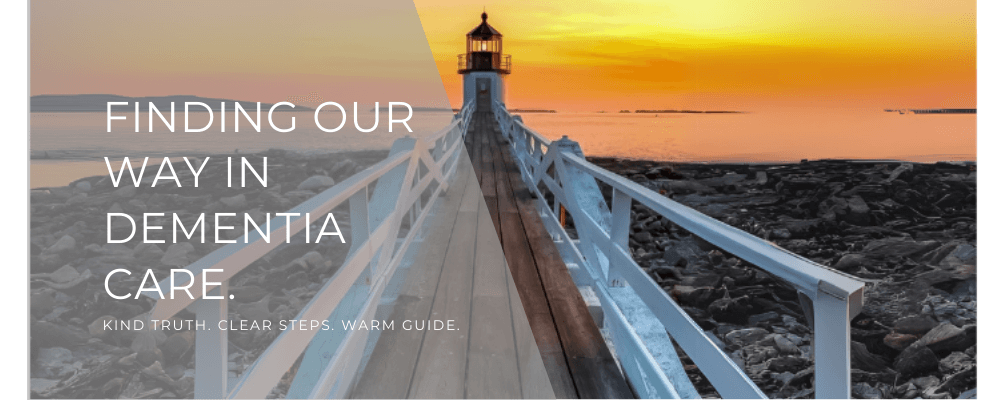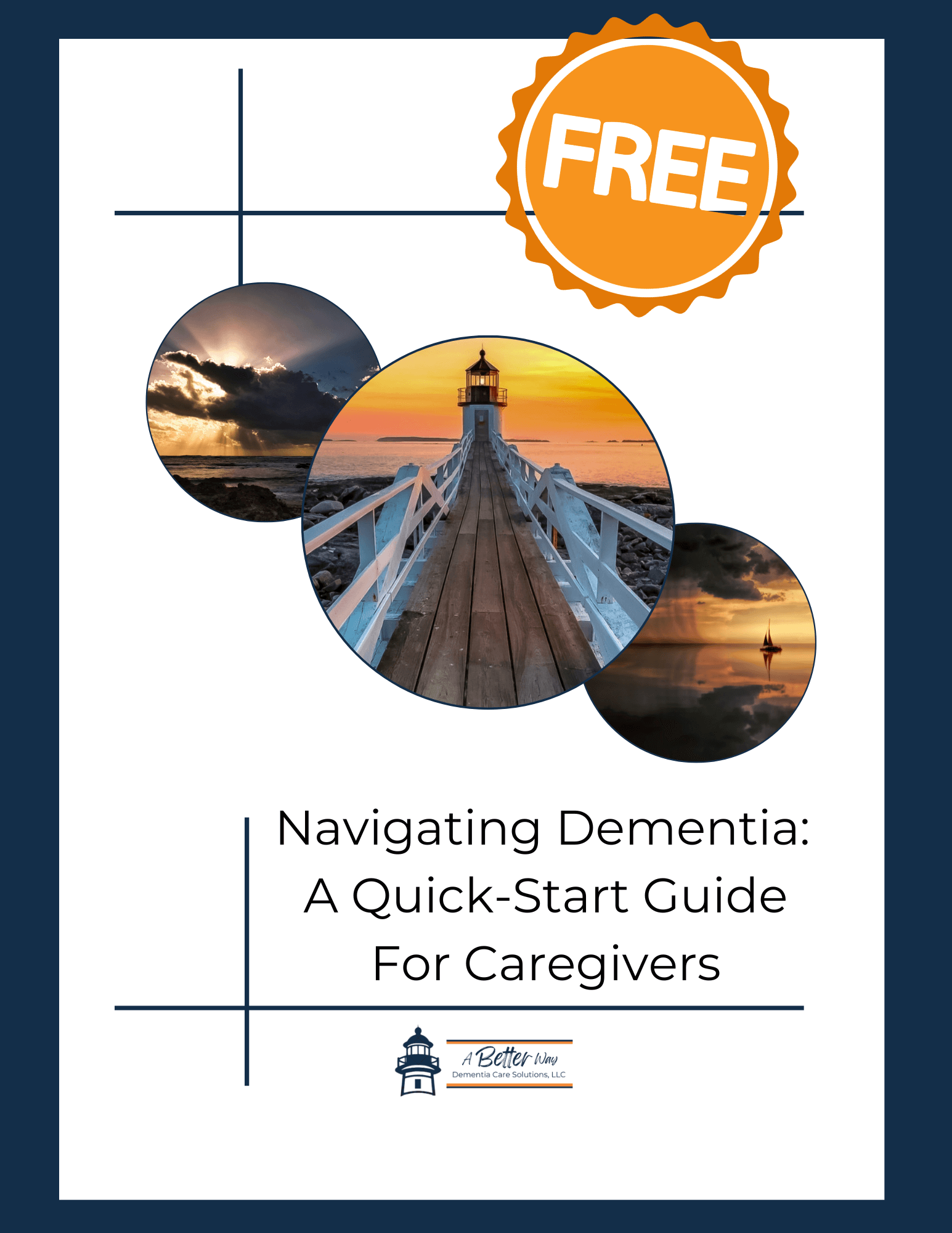
Why Support Matters
If you have ever thought, “I cannot keep doing this alone,” you are not alone. Caregiving for someone with dementia is an act of deep love, but it is also one of the hardest journeys you can take. Exhaustion, confusion, and the constant uncertainty of what tomorrow will bring can wear down even the most devoted caregiver.
That is why the Centers for Medicare and Medicaid Services (CMS) launched the GUIDE Program. Its purpose is not only to provide medical oversight, but to strengthen the caregiver, improve daily life, and keep people with dementia at home longer, where they often feel most secure.
In this post, we will explore how GUIDE directly supports caregivers, how it improves quality of life for people living with dementia, and what a typical day looks like when GUIDE is part of the picture. We will also talk openly about common fears, like feeling guilty for using respite services or wondering if you deserve help at all.
How GUIDE Supports Caregivers
The heart of GUIDE lies in caregiver support. Caregivers often say they feel invisible, even though they are the ones holding everything together. GUIDE changes that by putting you at the center of the care plan.
Here are some of the key ways caregivers benefit:
- Confidence through education. GUIDE provides caregiver training and resources so you do not have to guess at how to handle challenging behaviors, manage medications, or make the home safer.
- Relief through respite. The program offers coverage for short-term relief, up to a set annual amount, for families with complex care needs. This gives you time to rest, recover, and take care of yourself.
- Guidance through a Care Navigator. You are paired with someone whose job is to listen, answer questions, and coordinate services. Instead of making dozens of phone calls, you have one main point of contact.
- Reassurance through 24/7 support. When crises happen at midnight, you have somewhere to turn besides the emergency room.
- Peace of mind through care planning. GUIDE helps align medical care, community services, and family priorities into a single plan so you are not juggling everything alone.
These supports are not luxuries. They are necessities that help you sustain your role without burning out.
How GUIDE Supports the Person Living With Dementia
While GUIDE focuses on supporting caregivers, it also benefits the person you care for. Dementia is unpredictable, but research shows that with consistent support, outcomes improve.
Key benefits include:
- Fewer unnecessary hospital visits. By addressing issues early through coordinated care and 24/7 backup, GUIDE helps prevent avoidable emergencies.
- Staying home longer. Most people with dementia want to remain in familiar surroundings. GUIDE makes that more possible by giving caregivers the resources they need to continue providing care at home.
- Safer routines. With caregiver education and planning, daily activities like bathing, meals, and mobility can become less stressful and more predictable.
- Better overall health. When caregivers are supported and less stressed, the quality of care improves, which in turn benefits the person living with dementia.
GUIDE is built on the idea that supporting the caregiver directly improves life for the person with dementia. Both are intertwined.
A Day in the Life With GUIDE
To better understand what GUIDE looks like in action, imagine this story.
Maria is caring for her husband, David, who is in the moderate stage of dementia. Before GUIDE, Maria felt constantly overwhelmed. She was never sure if she was handling things correctly. She worried about leaving David alone, and she had not been to her own doctor in over a year.
Through GUIDE, Maria was paired with a Care Navigator named James. Together, they created a care plan that outlined David’s medical needs, safety strategies for the home, and resources Maria could lean on.
One evening, David became very agitated and tried to leave the house. Instead of calling 911 in a panic, Maria used the 24/7 support line. She spoke with a trained professional who walked her through calming techniques. The situation de-escalated, and Maria avoided an unnecessary hospital visit.
A month later, Maria used her allotted respite hours to attend her daughter’s wedding. For the first time in years, she was able to fully participate in a family milestone, knowing that David was cared for safely.
This is what GUIDE can look like. It is not about removing challenges entirely. It is about making them manageable, with support you can trust.
Facing Common Fears
Even with these benefits, many caregivers hesitate to use programs like GUIDE. Some of the most common concerns include:
Fear: “If I use respite care, I am failing.”
Truth: Taking a break does not mean you love the person less. It means you are protecting your ability to continue caring long-term. GUIDE recognizes that without rest, caregivers cannot sustain their role.
Fear: “I should be able to handle this on my own.”
Truth: Dementia care is complex. It often requires a team. GUIDE exists because CMS acknowledges that no single caregiver should have to do this without support.
Fear: “I do not deserve help when others have it worse.”
Truth: Your challenges are valid, no matter what anyone else is going through. GUIDE is designed for families like yours because every caregiver deserves support.
By naming these fears, you can begin to see them for what they are: natural reactions to stress, not evidence that you should avoid help.
Tips to Strengthen Your Caregiving
Here are a few small practices that can help you embrace the support GUIDE offers:
- Keep a caregiving notebook. Jot down questions, behaviors, or concerns as they happen. Share them with your Care Navigator so you do not have to remember everything.
- Set a personal boundary. Commit to using at least one respite service each year, even if it feels uncomfortable. Think of it as preventive care for yourself.
- Use affirmations. Simple reminders can reduce stress. Example: “Asking for help makes me a stronger caregiver.”
- Share your hopes. When talking with your Care Navigator, do not just list problems. Share what you hope will improve. This shifts the focus from surviving to thriving.
Journal Prompt for Caregivers
Take a quiet moment to write: What fear or guilt do I feel when I think about asking for help? How would my caregiving experience change if I let go of that fear?
This reflection can open the door to accepting support more fully.
You Are Worthy of Support
Help is not a sign of weakness. It is a resource you are entitled to. GUIDE was created to honor the work you are already doing and to make sure you do not have to do it alone.
Call to Action
This is the third post in our GUIDE series. If you are ready to take the next step, download our GUIDE Caregiver Enrollment Checklist. This simple, step-by-step tool will help you stay organized, reduce overwhelm, and feel more confident as you move forward with GUIDE.
Download your GUIDE Caregiver Enrollment Checklist here
Notes
- Centers for Medicare and Medicaid Services (CMS). GUIDE Model Overview. https://www.cms.gov/priorities/innovation/innovation-models/guide
- CMS GUIDE Model Fact Sheet. https://www.cms.gov/files/document/guide-model-patient-caregiver-fs.pdf
- CMS GUIDE Model FAQs. https://www.cms.gov/priorities/innovation/guide/faqs
- Alzheimers Association. Medicare GUIDE Program. https://www.alz.org/help-support/caregiving/financial-legal-planning/medicare-guide-program-for-dementia-care
- ThoroughCare. CMS GUIDE Program: Support for Dementia Patients and Caregivers. https://www.thoroughcare.net/blog/cms-guide-program-dementia-patients-caregivers
Affiliate Disclosure
A Better Way - Dementia Care Solutions, LLC participates in the Amazon Associates Program, which means we earn a small commission when you buy through links on our site, at no extra cost to you. We only recommend products that we believe can help caregivers on their journey.
Disclaimer
The information provided in this blog is for educational purposes only and should not be considered medical advice. Always consult with a doctor or a licensed physical therapist before following any recommendations mentioned. Every individuals needs are different, and professional guidance is essential to ensure safety and appropriateness of care.
Want to keep figuring this out together?
Subscribe to Finding Our Way in Dementia Care and get honest stories, helpful tips, and gentle support delivered to your inbox every week. Just real talk, grounded care, and space to breathe.
Subscribe to Finding Our Way in Dementia Care and get honest stories, helpful tips, and gentle support delivered to your inbox every week. Just real talk, grounded care, and space to breathe.
Kind truth. Clear steps. Warm guide.
















0 Comments